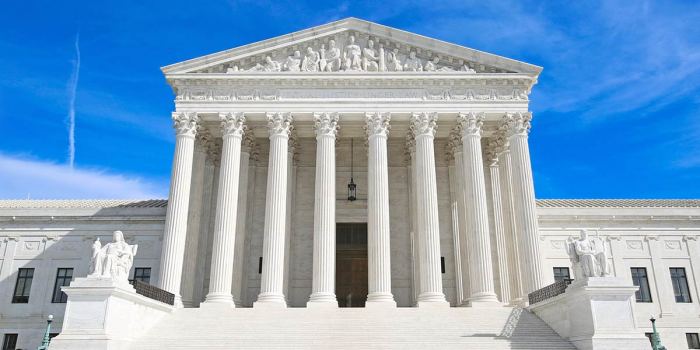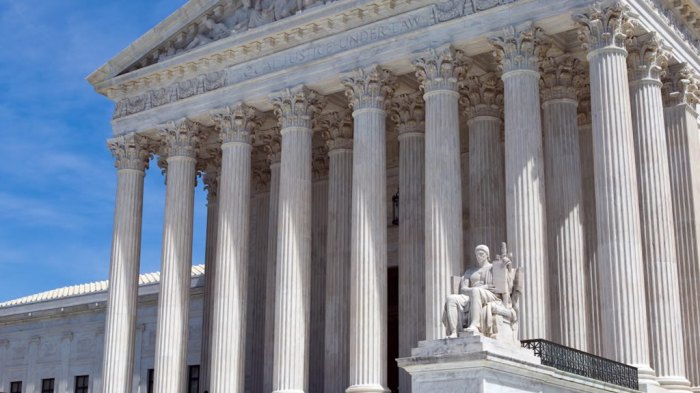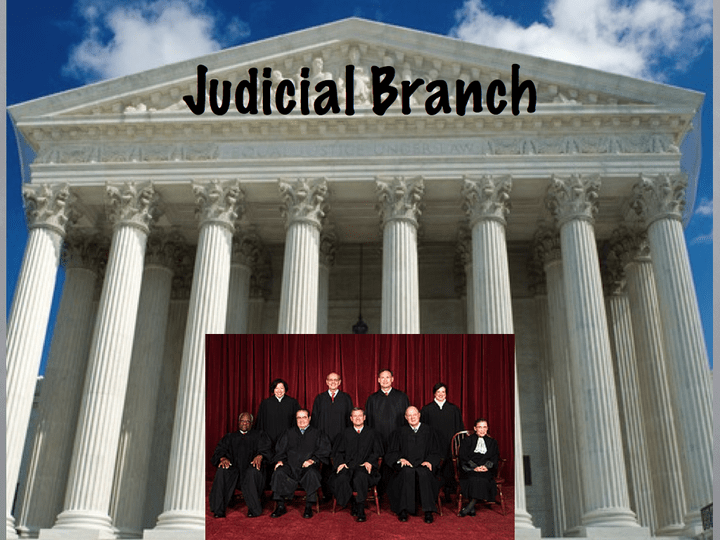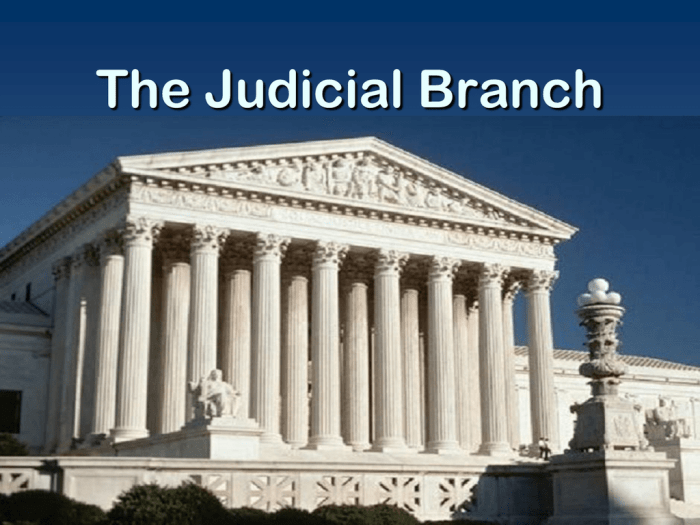Introducing the Judicial Branch in a Flash Answer Sheet, an authoritative guide to the intricate workings of this vital branch of government. This comprehensive resource unravels the fundamental functions, structure, and impact of the judiciary, providing a clear and concise understanding of its role in safeguarding justice and upholding the rule of law.
Delving into the hierarchical structure of courts, we explore the distinct roles and jurisdictions of each level, from local tribunals to the highest appellate courts. The concept of judicial independence is thoroughly examined, highlighting its paramount importance in preserving the integrity and impartiality of the judiciary.
The Role of the Judicial Branch: Judicial Branch In A Flash Answer Sheet

The judicial branch plays a pivotal role in any government system by ensuring that the laws are interpreted and applied fairly. Its primary functions include:
- Adjudicating disputes:Resolving legal conflicts between individuals, businesses, and the government.
- Interpreting the law:Clarifying the meaning and application of laws, including the constitution.
- Enforcing the law:Ensuring that laws are followed and punishing those who violate them.
Cases that fall under the jurisdiction of the judicial branch include:
- Civil cases: Disputes involving private parties, such as contract breaches or personal injuries.
- Criminal cases: Offenses against society, such as theft, assault, or murder.
- Constitutional cases: Disputes involving the interpretation of the constitution.
Structure of the Judicial Branch

The judicial branch typically consists of a hierarchy of courts, with lower courts handling less serious cases and higher courts reviewing decisions made by lower courts.
Hierarchy of Courts, Judicial branch in a flash answer sheet
- Trial courts:Where cases are initially heard and evidence is presented.
- Appellate courts:Review decisions made by trial courts and determine if errors were made.
- Supreme court:The highest court in the hierarchy, responsible for interpreting the constitution and making final decisions on legal matters.
Judicial Independence

Judicial independence is essential for a democratic society as it ensures that judges are free from political influence and can make decisions based solely on the law.
Mechanisms to safeguard judicial independence include:
- Tenure:Judges are appointed for life or a fixed term, making them less vulnerable to political pressure.
- Impeachment:Judges can only be removed from office for serious misconduct, ensuring they are not easily dismissed for unpopular decisions.
- Judicial ethics:Judges are bound by ethical guidelines that prohibit them from engaging in partisan activities or accepting bribes.
Judicial Review
Judicial review is the power of the judiciary to examine the constitutionality of laws and government actions.
Judicial review is significant because it ensures that:
- Laws are consistent with the constitution.
- Government actions do not violate individual rights.
- The balance of powers is maintained among the branches of government.
Examples of landmark cases where judicial review was exercised include:
- Marbury v. Madison(1803): Established the Supreme Court’s power of judicial review.
- Brown v. Board of Education(1954): Declared racial segregation in schools unconstitutional.
Impact of the Judicial Branch

The judicial branch has a profound impact on society by:
- Protecting individual rights:Safeguarding fundamental freedoms such as free speech, due process, and equal protection under the law.
- Shaping public policy:Interpreting laws and making decisions that influence government actions and social norms.
Examples of how judicial decisions have influenced social and political change include:
- The legalization of same-sex marriage in the United States.
- The expansion of voting rights through the Voting Rights Act.
FAQ
What is the primary function of the judicial branch?
The primary function of the judicial branch is to interpret and apply the law, resolve disputes, and ensure justice is served.
How does judicial independence safeguard the judiciary?
Judicial independence protects the judiciary from political interference and ensures impartial decision-making by judges.
What is the significance of judicial review?
Judicial review allows courts to examine the constitutionality of laws and government actions, upholding the principle of checks and balances.